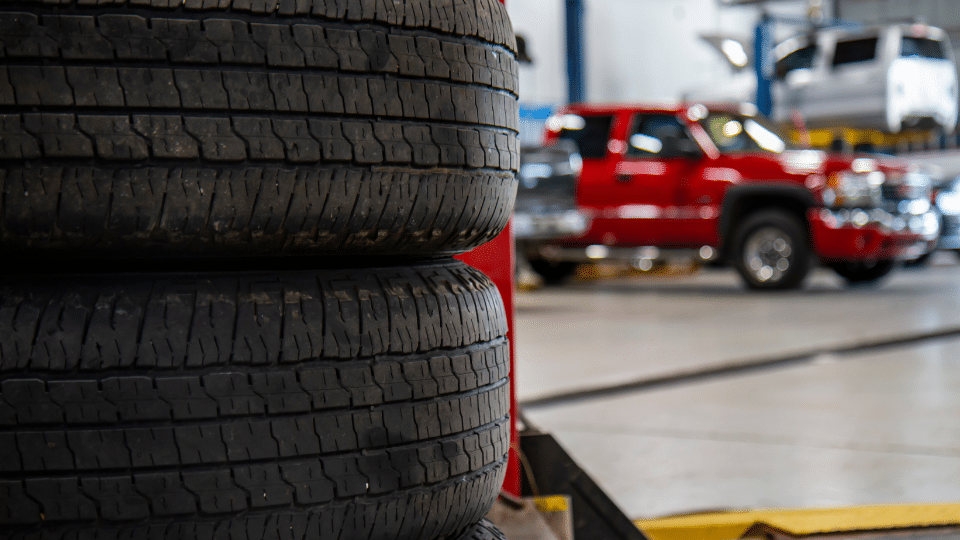
When I first started out in business in the early 1980s, the goal of every ambitious entrepreneur was to build a business large enough to eventually go public. I still recall the metric that was drilled into me back then: hit $50 million in revenue and a few back-to-back years of profitability and you, too, can go public. The benefits of going public are significant. First, there’s the ability to raise substantial capital by issuing shares to the public in an initial public offering (IPO), as well as secondary offerings. Second, publicly traded companies gain increased visibility, which can enhance their brand image and attract even more customers. Lastly, going public is a liquidity event for the founders and early investors, allowing them to cash in on their success.
Many tire manufacturers are public on an exchange in the United States or internationally. These include Bridgestone Corp., Michelin Group, Continental AG, Balkrishna Industries Ltd. (BKT), Yokohama Rubber Co. Ltd., Sumitomo Industries Ltd., Pirelli & Cie SpA, Hankook, Tire & Technology Goodyear Tire & Rubber Co., Toyo Tire Corp. and Nokian Tyres, among others. But when it comes to tire and auto service retailers, I can only think of three – Monro Inc., Driven Brands and Icahn Automotive – that are public. I’ve been wondering why there aren’t more. It turns out that there are fewer public companies of all types across all industries.
At the peak in 1996, about 8,000 firms were listed on the U.S. stock market. Coincidentally, in that same year, The National Securities Markets Improvement Act of 1996 was passed, allowing private equity funds of all types to raise large pools of money from an unlimited number of institutional investors. The upshot is that private companies could now raise all the money they needed from private equity or venture capital funds without even considering an IPO. So over the last 30 years, fewer and fewer companies have been going public. Today, the number of U.S. public companies stands at about 3,700, down by more than half.
But that alone does not tell the whole story. Over this same period, the largest private equity groups have also bought large public companies that they feel have been undervalued and have taken them private. Now don’t think that the U.S. — with an economy in 2023 generating over $26 trillion in GDP — now has half as many companies as when the economy was at $11 trillion GDP. It’s just that companies are staying in private hands. According to Wells Fargo, in 2023 there are five times as many private equity-backed firms in the U.S. as there are publicly held companies. Other than the smallest of businesses, they’re in every part of the spectrum — from companies with $10 million in revenue up to billions of dollars in revenue from former publicly traded companies.
Clearly many tire dealerships, along with many others companies, have opted to steer clear of the complexities and challenges associated with being a publicly traded entity. One downside is that public companies are subject to the scrutiny of shareholders, Wall Street analysts and regulatory bodies. I’ve observed Michael Broderick, the CEO of Monro, ably answer questions from surly analysts at the annual Gabelli Auto Aftermarket Conference held during SEMA week. It didn’t look like fun. But the costs of compliance with regulatory requirements, such as those imposed by the Securities and Exchange Commission (SEC) and the Sarbanes Oxley Act of 2002, are significant. Publicly traded companies must adhere to stringent and transparent reporting standards at substantial legal and administrative costs. Compliance needs to be well-managed, so problems that divert management attention from core business operations are avoided.
For tire dealers, private equity offers several advantages over going public. One key benefit is the preservation of operational control. Private equity is not interested in running your business themselves. They want your management team to retain a substantial stake in the company and keep making key strategic decisions with a board of directors’ oversight, of course. Private equity also provides flexibility in terms of timing and structure. Companies can choose when to engage with private equity investors and negotiate deals that align with their growth plans. This contrasts with the rigid timelines and standardized processes associated with IPOs.
Furthermore, private equity often brings operational expertise to the table, particularly in smaller deals. Smart, operationally focused private equity firms collaborate closely with management teams to enhance operational efficiency, implement growth strategies and drive value creation. Private equity has emerged as a pragmatic solution for tire dealers seeking a capital infusion without completely compromising their autonomy.
Michael McGregor is a Managing Director at FOCUS Investment Banking (focusbankers.com/tire-and-service) and advises and assists multi-location tire dealers on mergers and acquisitions in the automotive aftermarket. For more information, contact him at [email protected]. This article was previously published on Modern Tire Dealer.












